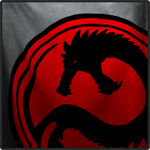 IraqiWalker, on 12 May 2015 - 10:31 PM, said:
IraqiWalker, on 12 May 2015 - 10:31 PM, said:
Did you even read the example?
Is reading comprehension in such a short supply nowadays?
1- For the analogy, the criminal is on the most wanted list (this means they have committed some seriously bad crimes).
2- In terms of what happened here, the player was reported.
3- You have NO evidence to support anything you're claiming there. How do you know that PGI has no anti-cheats implemented?
How do you know that PGI doesn't know what they are doing?
How do you know that they didn't investigate the cheater?
How about you drop the B.S., and only state things that: a- make sense, and b- you can back up.
Burden of proof is on the accuser here.
PGI investigated the player, found them guilty, and punished them accordingly. According to the EULA they don't even need to tell you when they ban you.
Try reading my previous posts in this thread regarding why there is almost certainly no anti-cheat. Here's the very oversimplified version: among other things, it is very unlikely that PGI, with a very small team, managed to implement an anti-cheat for a game running on CryEngine, which is notoriously vulnerable when CryTek, a company employing 700 people, cannot implement one for its OWN GAMES.
If this is not enough for you, then go read those previous posts in the thread I mentioned. It's very easy to find them.
"1- For the analogy, the criminal is on the most wanted list (this means they have committed some seriously bad crimes)."
The analogy is flawed from the start, because they have no way of knowing a "crime" was even committed, so how could they have compiled a list of "criminals"?
 Armando, on 13 May 2015 - 12:29 AM, said:
Armando, on 13 May 2015 - 12:29 AM, said:
He got it right, the burden of proof lies with the person making the accusation. In this specific case, the burden of proof would lie with the person accusing PGI of banning someone without evidence.
Not to be confused with the burden of proof that would lie with PGI for accusing a player of cheating. That evidence only needs to be (and only SHOULD BE) shared with the quote / unquote 'cheater'. All it needs to be shared is evidence...in no way is PGI obligated to share their investigation methods, and would be gigantic morons if they did.
****UPDATE*****
OMG, just realized that the people asking PGI for EXPLICIT information on HOW they caught the cheater, cheating...is the cheater in questions unit.
Before I realized this I wouldn't have thought twice to look at old 'what ever the hell it was' former unit (you know, before the Ban), but NOW...after these kind of shady, Shady, SHADY requests / demands, I will be disappointed if PGI didn't review each and every member for similar evidence.
They were never in NKVA, sorry. Next.
 KursedVixen, on 13 May 2015 - 01:13 AM, said:
KursedVixen, on 13 May 2015 - 01:13 AM, said:
So am I to assume that if a certain person in your unit were to be banned for 'hacking' the system giving themselves tons of free MC and abusing the ability to do so, should not be banned because they can't show you proof?
If this was even a possible hack, I would say that PGI keeps records of MC transactions (
https://mwomercs.com/profile/credits), so it could be compared against payment transactions to catch them, except anyone sophisticated enough to do this could easily cover their tracks to avoid getting caught.
 PFC Carsten, on 13 May 2015 - 03:27 AM, said:
PFC Carsten, on 13 May 2015 - 03:27 AM, said:
Trial by other criminals? I wouldn't think so... *SCNR*
If this is what you think "innocent until proven guilty" and "jury of peers" means...
e: ok, here's the elementary school version, so more than 5% of the posters in this thread can understand what I'm saying:
Developing an anti-cheat for anything is hard.
Developing an anti-cheat for a CryEngine game is even harder.
CryTek, a medium size company, can afford to hire people who received an actual education in computer science.
The same company, which makes CryEngine, cannot do it.
PGI is a much, much smaller company.
Therefore, it is very unlikely that there is any anti-cheat at all.
Edited by Coordinator Aigis Kurita, 13 May 2015 - 08:35 AM.
 Lily from animove, on 13 May 2015 - 05:08 AM, said:
Lily from animove, on 13 May 2015 - 05:08 AM, said: Lily from animove, on 13 May 2015 - 05:08 AM, said:
Lily from animove, on 13 May 2015 - 05:08 AM, said:
 This topic is locked
This topic is locked





































